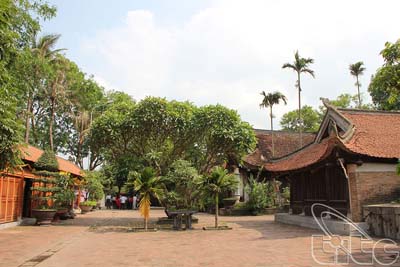The number of tourists to the northern province of Bac Giang has seen an average growth of around 15 percent in recent years, thanks to its efforts in tapping local tourism potential.

Vinh Nghiem Pagoda
With its proximity to major northern economic-tourism hubs of Hanoi, Hai Phong city and Quang Ninh province, Bac Giang is striving to collaborate with these localities to build combined tours.
The province is home to more than 2,200 historical relic sites, including over 100 recognised national ones. The most remarkable are Vinh Nghiem Pagoda where more than 3,000 Buddhist sutra wood blocks are being preserved, Tho Ha Communal House, the revolutionary safety zone in Hiep Hoa district, and relics of the Yen The uprising in the French colonial time.
Bac Giang is also endowed with various scenic sites, notably Suoi Mo and Dong Thong tourism areas, or the Khe Ro primitive forest.
More than 500 traditional festivals are organised annually in the locality. Many of them feature unique cultural identities of local ethnic minority groups.
In addition, a variety of local specialties have long been famous throughout the country, such as lychee grown in Luc Ngan district, rice wine of Van village, ceramic of Tho Ha, crispy rice cracker of Ke village or dry rice noodle of Nam Duong.
With the target of turning tourism into one of its key economic sectors, Bac Giang has exerted efforts in implementing a number of programmes and projects to expand the industry until 2020 with a vision towards 2030.
Nearly 100 billion VND (4.7 million USD) from the provincial budget, along with tens of billions of VND mobilised from all economic sectors have been poured into preserving historical and cultural relic sites as well as traditional art forms such as Quan Ho (love duet singing) and Ca Tru (ceremonial singing), recognised by the UNESCO as two examples of the World Intangible Cultural Heritage.
In the time ahead, the province will do more to address shortcomings in tourism human resources, service quality and infrastructure in order to turn its potential into reality.